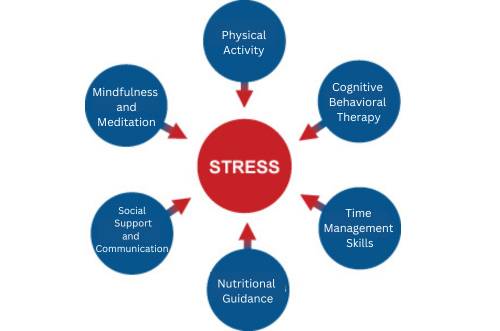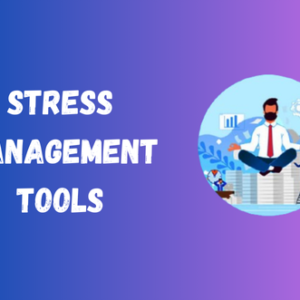In today’s fast-paced world, stress has become an unwelcome companion for many. The relentless demands of work, personal life, and societal expectations can take a toll on mental and physical health. Recognizing the pervasive nature of stress, stress management programs have emerged as a structured approach to help individuals navigate life’s challenges more effectively. These programs are not only vital for personal well-being but also for enhancing productivity and fostering a positive outlook on life.
Understanding Stress and Its Impacts
Stress is a natural response to external pressures, whether they stem from deadlines, financial concerns, or interpersonal conflicts. While short-term stress can motivate individuals to perform better, chronic stress often leads to adverse effects such as anxiety, depression, sleep disorders, and weakened immunity. Prolonged exposure to stress can also contribute to serious health conditions, including cardiovascular diseases and high blood pressure.
Stress management programs aim to mitigate these effects by equipping individuals with tools and techniques to better handle stressors. These programs are designed to address the root causes of stress and promote healthier coping mechanisms.
Key Components of Stress Management Programs

Effective stress management programs incorporate a variety of strategies to address the multifaceted nature of stress. Here are some of the core elements typically included:
1. Mindfulness and Meditation
Mindfulness practices, such as meditation and deep-breathing exercises, are cornerstone techniques in stress management. These activities encourage individuals to focus on the present moment, reducing anxiety about the past or future. Research has shown that regular mindfulness practice can lower cortisol levels, the primary stress hormone, and enhance overall emotional resilience.
2. Physical Activity
Exercise is a proven stress reliever. Physical activity releases endorphins, which are natural mood elevators. Stress management programs often include fitness routines such as yoga, aerobics, or simple stretching exercises to promote physical and mental well-being.
3. Cognitive Behavioral Therapy (CBT)
CBT is a psychological approach that helps individuals identify and reframe negative thought patterns. By addressing the cognitive aspects of stress, CBT empowers individuals to respond to stressors more constructively. Many programs integrate CBT workshops or individual counseling sessions.
4. Time Management Skills
Poor time management is a significant contributor to stress. Programs often include training on prioritizing tasks, setting realistic goals, and avoiding procrastination. Mastering these skills can help individuals feel more in control and less overwhelmed.
5. Nutritional Guidance
Diet plays a critical role in managing stress. Consuming a balanced diet rich in whole grains, lean proteins, fruits, and vegetables can help stabilize mood and energy levels. Stress management programs may offer dietary advice or collaborate with nutritionists to educate participants about the benefits of healthy eating.
6. Social Support and Communication
Connecting with others is a powerful antidote to stress. Programs often emphasize building strong support networks through group activities, peer counseling, or family involvement. Learning effective communication skills can also reduce misunderstandings and conflicts that contribute to stress.
Benefits of Stress Management Programs
Investing in a stress management program can yield significant benefits for both individuals and organizations. Some of the notable advantages include:
- Improved Mental Health: Participants often report reduced symptoms of anxiety and depression, leading to a more balanced emotional state.
- Enhanced Productivity: By learning to manage stress effectively, individuals can focus better and accomplish tasks more efficiently.
- Stronger Relationships: Improved communication and social skills foster healthier personal and professional relationships.
- Better Physical Health: Reduced stress levels contribute to improved immunity, lower blood pressure, and decreased risk of chronic illnesses.
- Increased Self-Awareness: Programs help individuals identify their stress triggers and develop personalized coping mechanisms.
Choosing the Right Stress Management Program
With numerous programs available, selecting the right one can seem daunting. Here are some tips to guide the decision-making process:
- Assess Your Needs: Identify the primary sources of your stress and the areas you wish to improve.
- Research Options: Look for programs that offer evidence-based techniques and qualified instructors.
- Consider Accessibility: Choose a program that fits your schedule and is convenient to attend, whether online or in-person.
- Seek Recommendations: Consult trusted friends, family, or colleagues for program suggestions.
Final Thoughts
Stress management programs are a valuable resource for navigating the complexities of modern life. By incorporating proven techniques such as mindfulness, exercise, and cognitive restructuring, these programs empower individuals to tackle stress head-on. Whether you are seeking personal growth or enhanced workplace performance, investing in a stress management program is a step toward a healthier, more fulfilling life. Remember, managing stress is not a one-time effort but an ongoing journey—and the right program can make all the difference.













